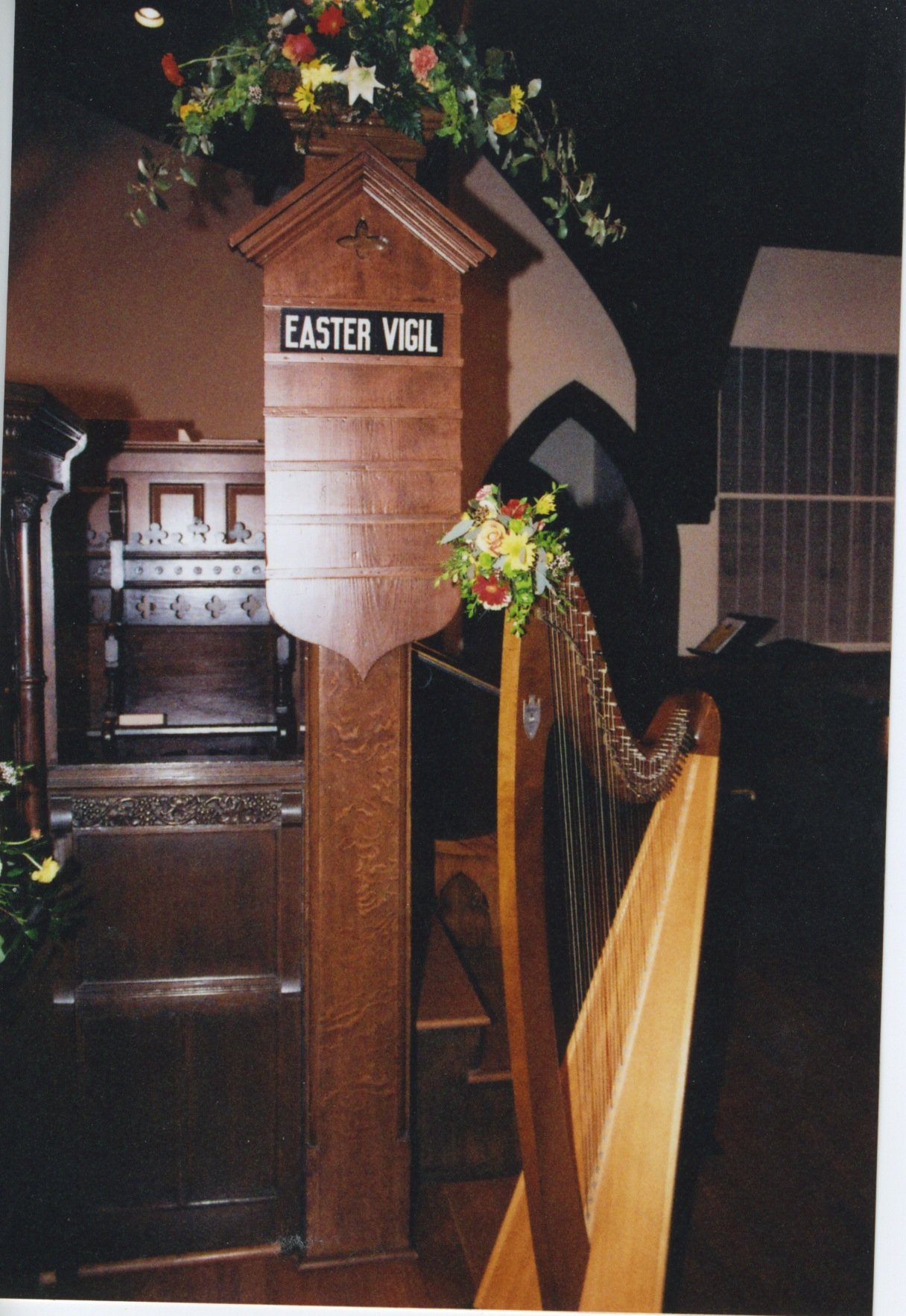Chant Exsultet Easter
“Chant calls us out of chronological time, in which ‘now’ can never be located, and into the eternal now, which is not really found in time.” —David Steindl-Rast in The Music of Silence: Entering the Sacred Space of Monastic Experience (HarperOne, 1995).
David Steindl-Rast reminds us that when we use this ancient voice of praise and prayer to God, we are standing in the presence of ancient angel choirs. We are changing the way we address God and each other. The words become notes. The message we chant sounds different. The sounds of the chant are soothing and comforting.
The music takes us to another place and another time. The sounds open our world to a new dimension. Chanting slows down the words of the message. The squirrels running in the cage in our heads slow down and become a bit quieter. Sometimes, time seems to stand still, and we feel at peace. We are home.
The chant that deacons most often sing is the Exsultet, which follows bringing the newly lit Christ candle back into the church at the Easter Vigil. This music becomes part of my body long before Lent begins, even if I am not the deacon designated to sing this lengthy Canticle.
Jason Pennington, the music director at one of my previous churches, describes the Exsultet as “one of the most difficult chants of the Church’s treasury of song, sung at the opening of the Great Vigil. It is the culmination of the events of the Holy Triduum, as the congregation holds their candles in the shadow of the one Paschal Candle. The choir, not yet allowed into the stalls, stands in the nave with the faithful as that most beautiful of Canticles is intoned and promises us all the immeasurable gift of salvation.”
I keep a note from Jason from our last Easter together, when I began having more mobility issues, and standing for a long time was more difficult.
Jason
“She faced excruciating physical pain to stand for the lengthy Canticle as she drew each breath to acclaim its message of life. She paced it well, taking her time and savoring every single phrase as if it were the very first. This was a beautiful gift of ministry, a Holy Spirit gift that put ministry before self. And isn’t that exactly the lesson to have been learned at the Mandatum not two nights before: ‘I give you a new commandment, that you should love one another.’ Joanna’s lovely, quiet chanting voice was tremulous with pain, yet was filled with joy. This was Easter.”
I keep Jason’s note to remind me and others that chanting is always an offering, never a performance.
Joanna. https://www.joannaseibert.com/





